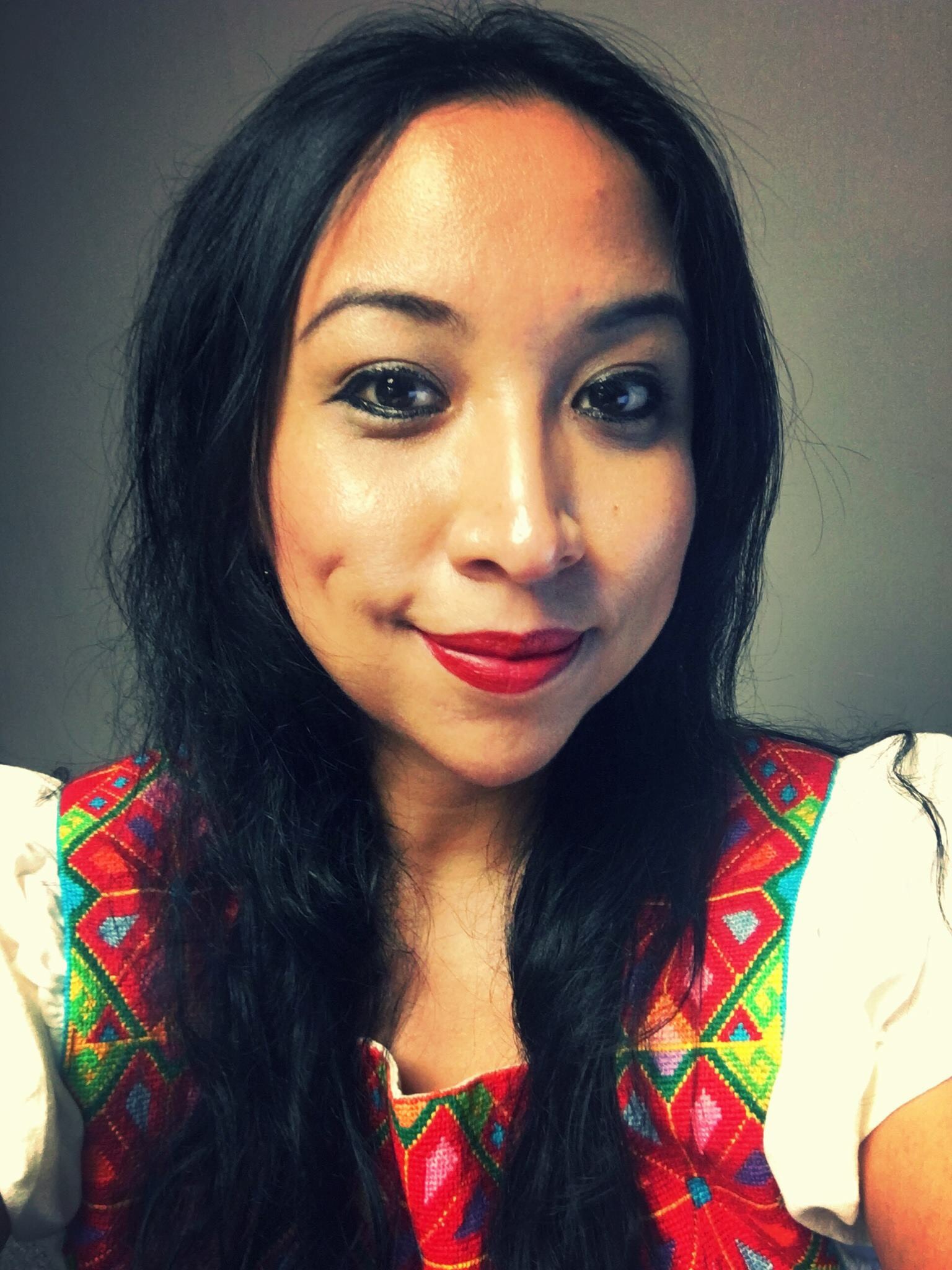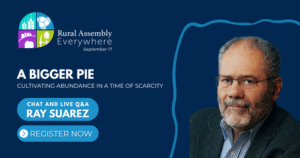
We will ignite the 2018 National Rural Assembly with our firestarters – committed citizens who are modeling for the nation how we mend and strengthen the social and civic fabric of our country. They are lighting fires and sparking change, each in their own way and in their own place, and we had the honor of speaking with Magaly Licolli recently. This is a guest post from Karen Fasimpaur reporting on the conversation.
“I was a warrior since I was born,” says Magaly Licolli. “If you have dreams that don’t fit into [society’s] rules, you need to fight and…find a way.”
Licolli has maintained a fierce focus on her goals and has used this focus to serve the community around her. After coming to the U.S. from Mexico in 2004, she eventually moved into the work of organizing workers in rural Arkansas.
“For me, coming here…was very hard on me because of the racism I had to face,” said Licolli. Then hearing the stories of undocumented people who were even more vulnerable than she was served as a wake-up call to her to use her privilege and talents to lift up her community. She soon felt called to organize poultry workers there who faced poor working conditions.
Immigrant workers often face harsh discrimination and exploitation. In the poultry industry, they are subject to low wages, unsafe work conditions, and workplace indignities. They can be made to feel sub-human and that the chickens are more important than them as workers.
“The only people who can change that are the workers,” says Licolli.
She began this work while working another full-time job, and then in 2015, against the odds, she became the Executive Director of the Northwest Arkansas Workers Justice Center, which works on labor issues with the immigrant community.
The work was very challenging and was filled with tasks that Licolli didn’t have previous experience with. Her belief in the importance of the work prompted her to persist.
“The only thing that really made me go through all of these challenges was my passion and the vision that I had to really make changes, systemic changes for my community,” she says.
After starting with just one staff member, the organization now has four full-time people. Licolli is proud of what they’ve achieved because the work they do is so important and their work is unique.
One of the challenges Licolli faced was what she calls the “polite politics” of the south, which may resonate with many rural communities. People are often hesitant to go up against the status quo for fear of offending people, and there is a reluctance to be direct. Licollifeels that we have to challenge these comfort zones and be authentic to our beliefs.
In addition, poultry is the biggest industry in Arkansas, with approximately 28,000 poultry workers there. With the poultry industry putting significant money into community improvement efforts, many community members were uncomfortable confronting them over worker issues.
Licollifelt, though, that these were two different issues — just because the industry does good work in the community doesn’t take away from the need to treat workers justly. Through hard work, she was able to gain allies in her fight, including those from the faith community and from other progressive groups. Food systems provided an opportunity to establish some of these alliances, since the issues of health, education, the environment, economic development, sustainability, and worker rights are all tied together.
“We all need to come together to fight,” she says.
Coming to the U.S. with a background in theater arts, Licolli was able to apply this to her pursuit for social justice. Initially, some were very doubtful that the workers would engage with this work, but now that they’ve seen the power, they believe in it and want more.
Licolli sees this as a “journey of creativity,” using the arts to encourage play, empower workers, bring consciousness, prompt reflection and give strength to their voices, ultimately uplifting them through collective power.
“To me, theater was always a way to bring justice.”
She believes that anyone can be an actor and tell their stories. Everyone has their stories, and they are all powerful. Telling these stories makes people more conscious about their realities and allows them to find their power. In one case, workers harnessed their own stories to develop a play about the journey of an immigrant and the violence and poverty they faced.
Licolli’s civic courage is evident in how she’s taken on this task with a spirit of constant learning and resiliency. She has challenged society’s expectations of her, as a woman and as an immigrant, with gusto. From the time she was a child in Mexico to her work now a successful organizer in the U.S., she has relied on the power of education and lifetime learning to soar.
And she believes that “anyone can change their reality.”
While fighting for our beliefs often results in objections and pushback from family, friends, and community, Magaly believes that her personal sacrifices in this regard have been worthwhile, to her and certainly to the community around her.
This sentiment is part of what makes Magaly Licolli a firestarter, and we look forward to having her join us at the National Rural Assembly 2018 in May.








